Syria's deputy prime minister reportedly dismissed talk
of the resignation of Bashar al-Assad, who is pictured here in
2009.
Editor's
note: Read this story in Arabic.
(CNN) -- The gruesome civil war in Syria that pits
government forces against rebels is now in its 18th month. Here are the latest
key developments:
Deputy
PM: Al-Assad's resignation not an acceptable condition for dialogue
Any suggestions of President Bashar
al-Assad resigning could be discussed only after a dialogue with Syrian rebels
begins, Deputy Prime Minister Qadri Jamil said Tuesday, according to Russia's
state-run RIA Novosti news agency.
Setting his resignation "as a
condition before dialogue means that there will be no dialogue," Jamil said
during a visit to Russia, according to the report.
He added that "the entire Syrian
people should be asked" about such a possibility. "If this issue is being
imposed on us from abroad, it is a very dangerous precedent in international
relations," he said, according to RIA Novosti.
Syrian state-run news agency SANA
quoted Jamil as saying that Syria "has kept its eyes set on achieving the
national reconciliation in Syria."
Jamil and a delegation are now in
Moscow. Russia has major trade deals with Syria and, along with China, has
blocked repeated efforts in the U.N. Security Council to pass resolutions that
many other countries argued could have pressured the Syrian regime to halt its
violent crackdown on the opposition.
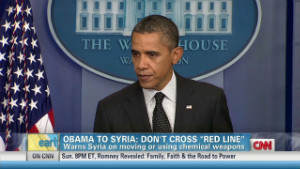
On
the ground: 230 killed
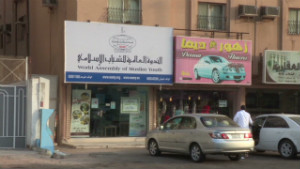
At least 230 people were killed
Tuesday, including 104 in Damascus and its suburbs and 42 in Aleppo, the
opposition Local Coordination Committees of Syria said.
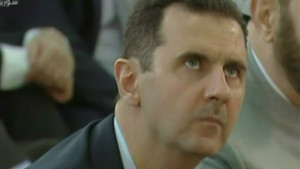
Syria, on state-run media, said its
forces "continued cleaning Aleppo's neighborhoods from the mercenary
terrorists."
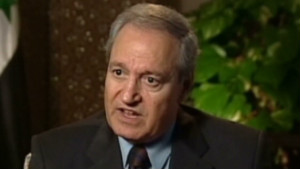
The Damascus suburb of Modamiyeh
sustained a bloody assault by regime forces Tuesday, with troops storming the
city from four directions amid heavy gunfire and shelling, the LCC said. Huge
explosions and mortar shelling continue to rock the city, where regime fire
killed several people Tuesday, the group said.
Syria said its forces battled
terrorists in Homs and elsewhere.
A Japanese journalist was killed
Monday during a gun battle in Aleppo, Syria's largest city and commercial
hub.
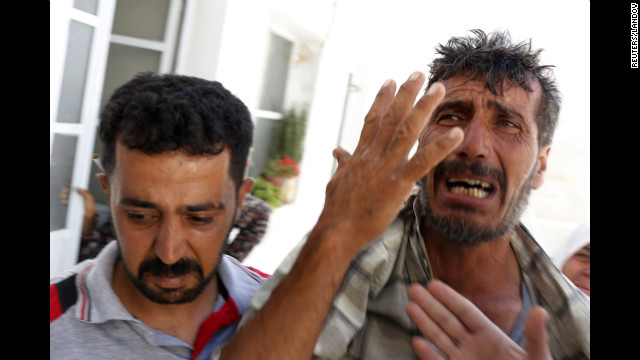
Mika Yamamoto, who worked for the
independent Japan Press news agency, was reporting on the rebel Free Syrian Army, the Japanese
Foreign Ministry said.
"I have seen the news on the
television. I really did not want to believe it," her father, Koji Yamamoto,
told the Japanese news agency Asahi on Tuesday. "She always thought of children
and women under the fire of conflict and kept saying it's her mandate to tell
the stories of those people to the world."
At least 20 other journalists have
been killed in Syria during the conflict, according to the nonprofit group Committee to Protect
Journalists. Seventeen of the 20 are believed to be work-related deaths; in
three cases, it is unclear whether the journalist was killed as a result of his
or her work, the group says.
On Monday, two other journalists
went missing and may have been arrested by the Syrian army. They work for
Alhurra TV, a U.S.-based Arabic language station.
"A Japanese female journalist was
killed by the regime forces, who also attacked (an) Alhurra TV crew and captured
the reporter and his Turkish cameraman," a man identified as Capt. Ahmed Ghazala
of the Free Syrian Army said in an amateur video that Alhurra aired.
CNN trip to get into -- and out of
-- Aleppo
Alhurra TV said that it has not
been able to reach its crew in Aleppo since Monday and that it was trying to
verify reports the team was arrested by the Syrian army.
World
reaction: New U.N. envoy to meet on Syria
The newly appointed U.N. envoy to
Syria, Lakhdar Brahimi, will visit New York to meet with U.N. Secretary-General
Ban Ki-moon and senior aides this week, a U.N. spokesman said.
U.S. President Barack Obama,
meanwhile, has delivered a stern
warning to al-Assad: Use chemical
weapons, and risk provoking a military response.
"We have communicated in no
uncertain terms with every player in the region that that's a red line for us
and that there would be enormous consequences, if we start seeing movement on
the chemical weapons front or the use of chemical weapons," he said Monday.
Syria is a juggernaut when it comes
to chemical weapons, analysts say.
The regime "probably has the
largest and most advanced chemical warfare program in the Arab world," Michael Eisenstadt of the Washington Institute for Near East
Policy said last month.
It includes thousands of rocket
artillery rounds filled with mustard-type blister agents that can damage skin
and lungs, and bombs filled with sarin that attacks the nervous system.
Opinion: Chemical weapons threat
demands response
Syria has denied owning chemical or
biological weapons. But Foreign Ministry spokesman Jihad Makdissi appeared to
reverse that stance last month, issuing a veiled threat:
"No chemical or biological weapons
will ever be used ... unless Syria is exposed to external aggression."
Al-Assad has long described the
uprising against his rule as a terrorist revolt and a "foreign conspiracy."
The
region: Fierce clashes erupt in neighboring Tripoli, Lebanon
Historic tensions between Sunni
Muslims in Tripoli's Bab-al-Tibbaneh neighborhood and Alawite Muslims in the
Jabal Mohsen neighborhood boiled over into clashes Tuesday.
Children were playing with BB guns,
leaving one wounded, said Ali Fedda, a member of the Arab Democratic Party in
the neighborhood. Residents then began shooting, and the army intervened in
response, Fedda said.
In recent months, the Syrian crisis
has aggravated decades-old quarrels between residents of the rival
neighborhoods. Dozens of gunmen exchanged gunfire, as the Lebanese troops
responded to the violence Tuesday afternoon.
Two people were killed and 36
injured, Lebanese state-run media reported Tuesday.
More: Syria violence fuels
kidnapping threats in Lebanon
The strife between Alawites and
Sunnis in Tripoli mirrors the conflict in Syria, where al-Assad's regime is
dominated by minority Alawites and the opposition is largely made up of
Sunnis.
CNN's Arwa Damon in Tripoli, Lebanon; Yousuf Basil, Salma
Abdelaziz, Holly Yan and Josh Levs in Atlanta; and Junko Ogura in Tokyo
contributed to this report.












0 comments:
Post a Comment